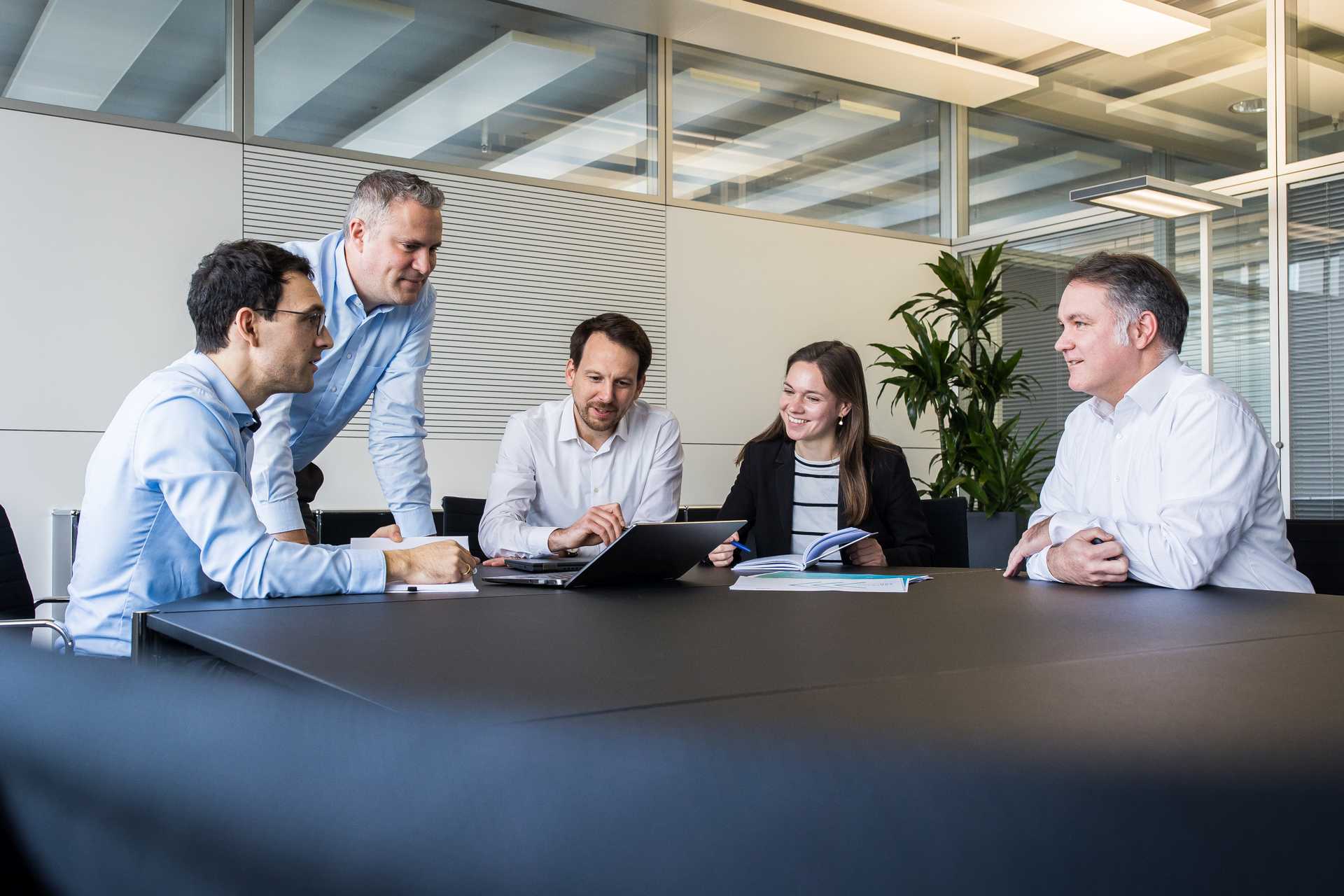
The German Supply Chain Due Diligence Act: complex term, complex task
Jul 28, 2023
The German Supply Chain Due Diligence Act basically places enterprises under the obligation to ensure compliance with human rights along their entire supply chain. With almost 30,000 suppliers around the world, it is a huge task for the Dürr Group to fulfill.
Previously, costs, adherence to deadlines, and quality were the decisive factors in awarding contracts. Now, with the Supply Chain Act, sustainability criteria have also been added. Do colleagues in purchasing need to change their way of thinking?
Arno Immler: Yes, absolutely. In 2020, we significantly expanded our Supplier Code of Conduct with regard to human rights and environmental standards, and at the same time began to inquire about certain sustainability aspects during initial contact with new suppliers. But with the Supply Chain Act, the sustainable supply chain has become a whole new priority. We have therefore been conducting training sessions with our more than 600 employees in purchasing worldwide since the beginning of 2023 to provide information about the new requirements and the measures we have initiated. Particularly at our foreign sites, we need to create an understanding that as a German company, we must comply with the new law worldwide. But further clarification is also needed in other areas. Many employees did not realize that the law does not only apply to our products. In such cases, we had to raise awareness that, for example, purchased services and non-production materials are also part of the supply chain and thus fall under the Supply Chain Act.
The sustainable supply chain has become a whole new priority.
Arno Immler, Manager Procurement Strategy & Cross Functions, Dürr Systems AG
In order to check its suppliers and raise their awareness, the Dürr Group works with self-assessment questionnaires and online training courses. How effective are these measures?
Nicolette Csapi: Currently, we are still in the middle of implementing them. It is therefore too early to draw an overall conclusion. Yet we already see that the measures are particularly effective when we require evidence of specific information. That is why we are planning to demand them on a larger scale. However, we are currently still focusing on rolling out the e-learnings and questionnaires to all our suppliers. This makes us a pioneer in the mechanical and plant engineering industry. Many other companies only take a look at a certain part of their suppliers. We have also opted for a collaborative approach, which means excluding suppliers is a last resort. Before this happens, we make every effort to work closely with our suppliers to enable them to improve their sustainability performance over time. This is based on the confidence that our suppliers will furnish accurate information as required. In the event of deviations from the requirements, we examine the causes together with the supplier and agree on improvement measures. There are, of course, escalation paths that can lead to us terminating business relationships. But we don’t really want to let it come to this. We are willing to accept the considerable additional expenses involved in supplier development because we can achieve more if we act in concert with our business partners.
How do you ensure that the Dürr Group complies with its human rights due diligence in the supply chain?
Karina Türkmen: It is not my job to be constantly looking over the shoulders of all colleagues or our nearly 30,000 suppliers. Rather, I see myself as a sparring partner for our purchasing, legal, and compliance departments. At Corporate Sustainability, we are in close, regular exchange with them anyway. Now my collaboration with the teams has intensified. We jointly define measures for implementing the Supply Chain Act, for example. In this way, I know at all times what the Dürr Group is doing to comply with its due diligence obligation, I know the processes and can provide advice to my colleagues. If there are reports of possible human rights violations by our suppliers, our Compliance Officer informs me directly and we investigate each individual case together. It goes without saying that I am also available as a contact person to all colleagues in the company if they have concerns or questions relating to the topic of human rights.
The German Supply Chain Due Diligence Act
The Supply Chain Act is intended to strengthen human rights and environmental protection along the entire supply chain. By means of appropriate processes, companies must fulfill their responsibility to comply with human rights and environmental standards in their own business operations and within the supply chain. Whenever indications of a violation of these standards are found, the company must take action and initiate appropriate remediation measures. If it fails to comply with its legal obligations, fines of up to 2% of its own annual turnover may be imposed. Currently, the law applies to all companies based in Germany and employing more than 3,000 people. From 2024, it will also apply to companies with more than 1,000 employees.
More information
This article was first published in our → Sustainability Report 2022.
Take a look inside if you want to learn more about our approach to sustainability as well as our goals and activities in this area.

Karina
Türkmen
Corporate Sustainability
Dürr Aktiengesellschaft
Carl-Benz-Str. 34
74321 Bietigheim-Bissingen
Germany
Carl-Benz-Str. 34
74321 Bietigheim-Bissingen
Germany




